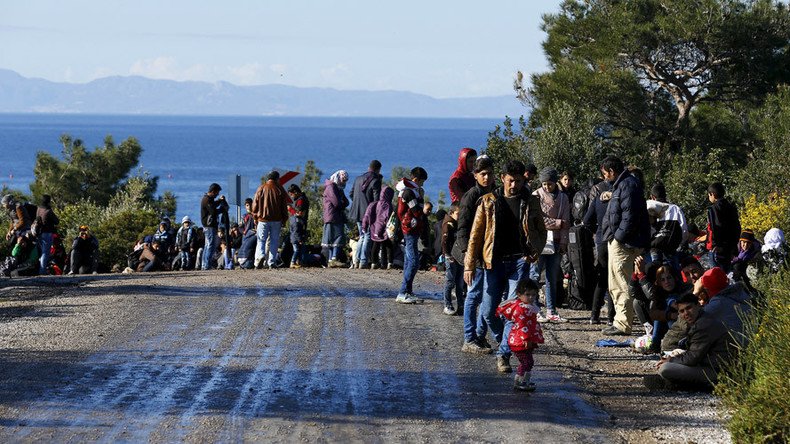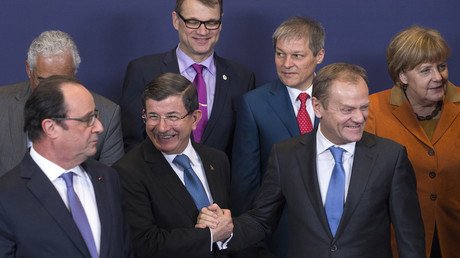‘Not consistent with intl law’: UN lambasts EU-Turkey ‘quick fix’ deal on refugee returns

The UN refugee agency has criticized the deal struck between the EU and Ankara which seeks to send refugees back to Turkey. The UNHCR says the agreement will expose migrants to huge risks, as well as break EU and international laws on the right to protection.
Ankara offered to take back all those who cross through its borders into the EU, while resettling the same number of Syrian refugees in the EU. In return in asked for billions more in cash, as well as expedited talks on EU membership and a rapid implementation of visa-free travel. The 28 EU members agreed and the decision is set to be completed by March 17-18, pending more work by officials.
But according to the UNHCR, the decision is a “quick fix” that will create a fragmented flow of refugees all trying to find ways back into the EU.
Speaking at a UN briefing on Tuesday, Vincent Cochetel, the UNHCR Europe Bureau Director, stressed that "collective expulsion of foreigners is prohibited under the European Convention on Human Rights. An agreement that would be tantamount to a blanket return of any foreigners to a third country is not consistent with European law, is not consistent with international law."
Another key problem associated with the decision, according to the UNHCR, is that the refugee flow would be fragmented, resulting in disparate groups that are all trying to return to the EU. "As long as the conflict is not solved, it's a myth to believe that the people will not try to leave. It may dissuade some people from leaving through that route, but it won't dissuade everybody."
On Europe’s commitment and its implementation so far, Cochetel believes the objective of resettling 20,000 refugees in the space of two years on a voluntary basis is still “very low,” not to mention Europe’s failure last September to relocate some 66,000 refugees from Greece. In fact, it failed on an epic scale, managing to relocate only 600, according to Cochetel’s previous statements.
While Turkey currently hosts three million Syrian refugees – the largest number worldwide – its current acceptance rates for those from Iraq, Iran and Afghanistan are also “very low,” the UNHCR director told Swiss radio RTS, as cited by Reuters.
"Sending back people who would not have access to protection in Turkey poses a certain number of problems in terms of international law and European law," he said. "I hope that in the next 10 days a certain number of supplementary guarantees will be put in place so that people sent back to Turkey will have access to an examination of their request [for asylum],” he added.
Similar concerns were voiced by the UN Children’s Emergency Fund (UNICEF), which stressed that "too many details still remain unclear."
UNICEF spokeswoman Sarah Crowe underlined that "the fundamental principle of 'do no harm' must apply every step of way." For the particular agency, this applies first to the rights of children. They are open to all sorts of dangers, including trafficking, forced labor and other forms of exploitation.
Meanwhile, Amnesty International blasted Ankara’s enduring record of leaving refugees to cope alone. It called the EU decision “alarmingly short-sighted and inhumane,” noting in a Tuesday statement how Turkey has “forcibly returned refugees to Syria and [how] many refugees in the country live in desperate conditions without adequate housing.”
Amnesty’s European head, Iverna McGowan, believes that "by no stretch of imagination can Turkey be considered a 'safe third country' that the EU can cozily outsource its obligations to."













